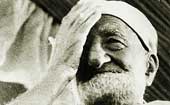|
|
| Beacon of light |
GHAFFAR KHAN NON-VIOLENT BADSHAH OF THE PAKHTOONS By Rajmohan Gandhi, Penguin, Rs 325
Khan Abdul Ghaffar Khan, also known as Badshah Khan or Frontier Gandhi, has been largely forgotten in the annals of India’s freedom movement. Like the Mahatma, Khan espoused the doctrines of non-violence and secularism, repudiated the idea of partition and ardently pleaded for Hindu-Muslim unity. His steadfast devotion to these principles, led to his incarceration — first at the hands of the British for 27 years — and then by the Pakistan government for 15 years. India’s first prime minister, Jawaharlal Nehru, lauded him highly for “so effectively and gallantly leading the people of the Frontier province in India’s struggle for freedom”.
Khan shared an affectionate allegiance with the people of this province. They in turn idolized him as their “general”. Khan believed that the Pathans were a people with their own distinctive culture, civilization, language, literature, art and architecture and should be left to frame their own destiny. The protection of the “Pathan identity” was the primary reason behind Khan objecting to any compulsory “grouping”of the North Western Frontier Provinces with Punjab.
But Khan’s hopes were dealt a cruel blow by the Congress’s eventual capitulation to the Muslim League’s demand for the creation of Pakistan. He told the Congress working committee: “We Pakhtoons stood by you and had undergone great sacrifices for attaining freedom, but you have now deserted us and thrown us to the wolves”. However he remained loyal to the party, and was indifferent to the overtures of Jinnah. He also blamed Nehru’s acceptance of the Partition plan, on the influence of the Mountbattens’ had on him, and Nehru’s own lust for power.
The humanitarian role played by Khan’s political followers, during the Punjab riots was significant. But for their contribution, more Muslims would have lost their lives and property during those troubled times.
Khan remained aloof from the Muslim League even after Partition. When Jinnah asked him to join the League, Khan replied that he found it difficult to join an organization whose members had only recently looted the properties of Hindus and Sikhs.
Addressing the Pakistan constituent assembly, Khan once said, “The riots in East Pakistan are the direct outcome of the policy you have been following for the last seven years. You gagged public opinion and imprisoned people...suppressed the legitimate aspirations of the people... and play off one against the other.
Khan’s forthrightness, rejection of violence and cooperation with non-muslims made him a shining figure during a dark phase in the nation’s history.











